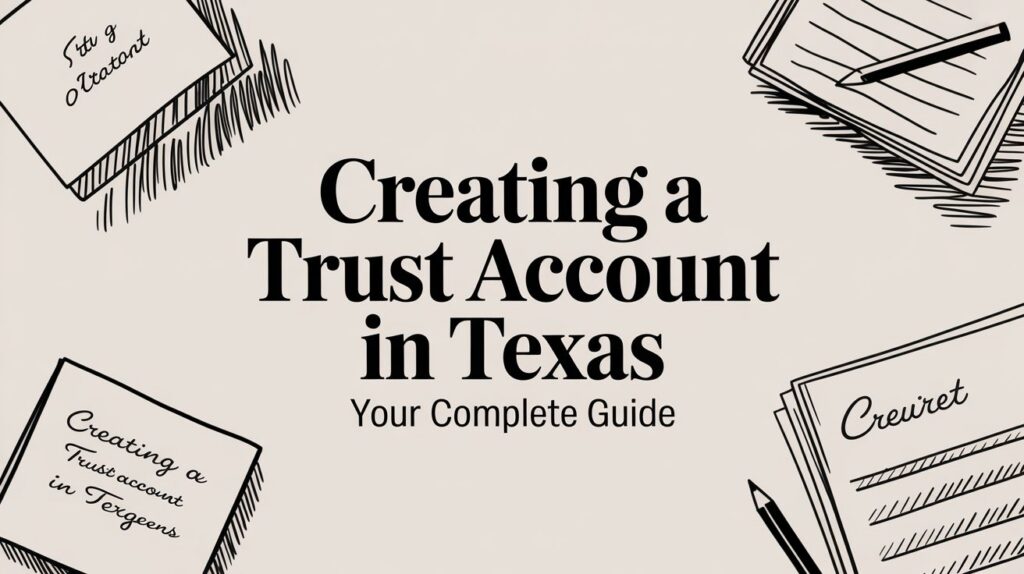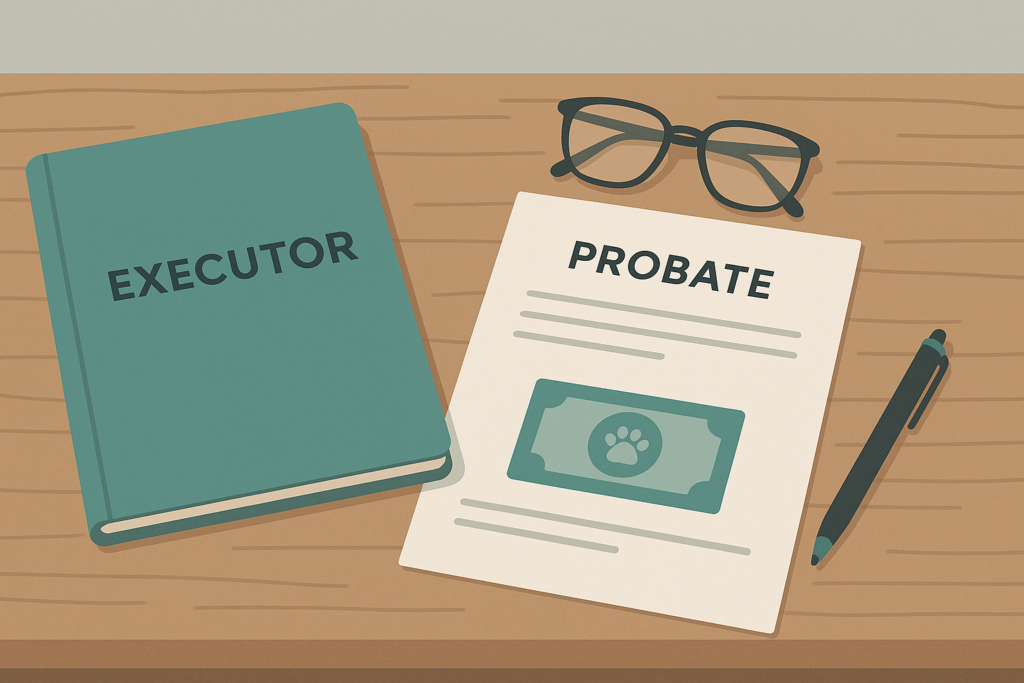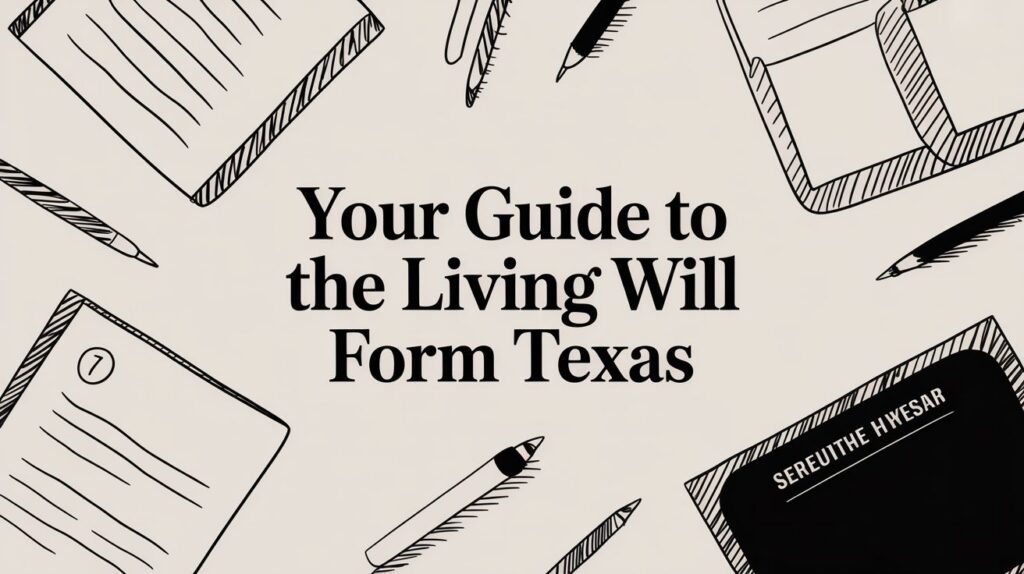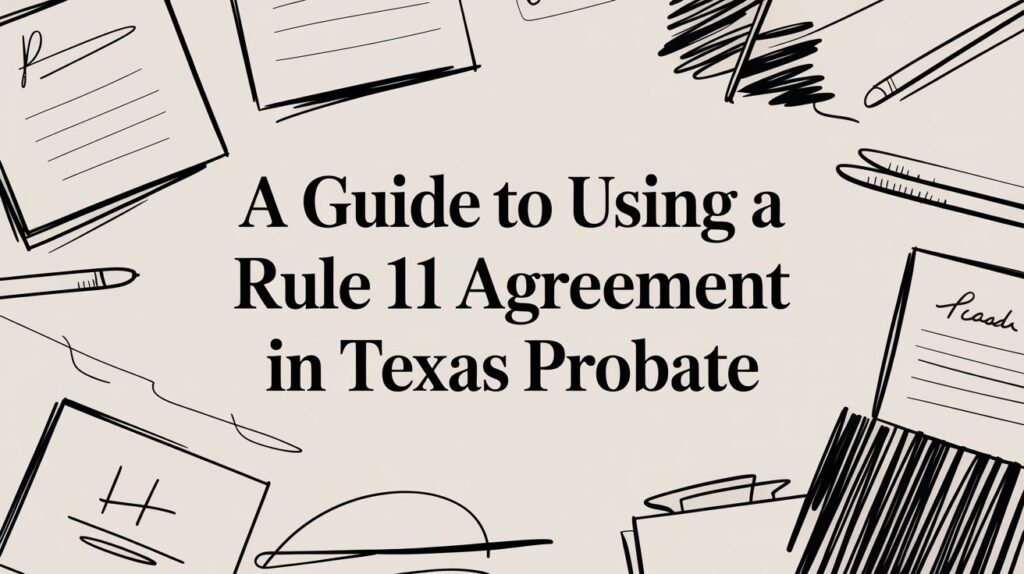When someone passes away and leaves behind real estate, the process of transferring ownership is typically handled through probate. In Texas, the probate process ensures that the deceased’s assets are distributed according to their will or state law. However, things can become more complex when properties with shared driveways are involved. Shared driveways, often governed by easements or other agreements, can introduce unique challenges during probate. This in turn complicates the distribution and management of the property. Here, we’ll explore how shared driveways affect probate in Texas, the legal implications, and the steps to navigate these complications.
Understanding Probate in Texas
Probate is the legal process used to settle a deceased person’s estate. It involves validating the will, paying off any debts, and distributing the remaining assets to heirs or beneficiaries. If the deceased did not leave a will, the estate is handled through intestate succession. In such cases, Texas state law determines who inherits the property. While many factors influence probate, real estate is often one of the most significant concerns.
In Texas, probate typically follows these steps:
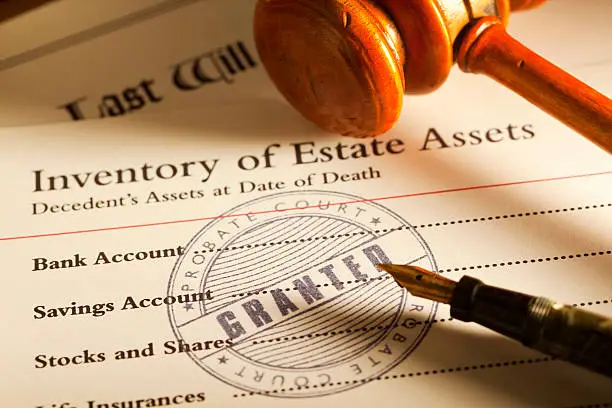
- Filing an Application for Probate – The process begins when the executor or a family member files an application with the probate court in the county where the deceased lived.
- Validating the Will – If there is a will, it must be proven valid in court.
- Appointing the Executor or Administrator – If there is a will, the court appoints the executor named in the will. If there is no will, the court will appoint an administrator.
- Identifying and Inventorying Assets – The executor or administrator will compile a detailed list of all assets, including real estate.
- Paying Debts and Taxes – Before any property is distributed, the estate’s debts, taxes, and other obligations must be settled.
- Distributing the Assets – Once debts are cleared, the remaining assets, including real estate, are distributed to the heirs or beneficiaries.
Shared Driveways: What Are They?
A shared driveway is exactly what it sounds like—a driveway used by more than one property owner to access their respective homes or businesses. In many cases, these driveways are governed by easements, which grant the right to use another person’s land for a specific purpose. A shared driveway agreement is typically set up when two or more neighboring properties rely on the same access point from a public road.
Shared Driveway Agreements:
- Easements: Most shared driveways are governed by easements that outline the rights and obligations of each property owner. These easements are usually recorded in the county property records.
- Maintenance Responsibilities: The agreement often specifies who is responsible for maintaining and repairing the shared driveway, and how costs are to be divided.
- Use and Access: The agreement defines how the driveway can be used and ensures that all property owners have unobstructed access.
When the owner of a property with a shared driveway passes away, these agreements can add layers of complexity to the probate process, as the new owner(s) must adhere to the existing terms of the agreement or negotiate new terms with the other property owners.
How Shared Driveways Complicate Probate
A shared driveway can introduce several challenges during the probate process. These challenges often arise from the legal, practical, and financial aspects associated with shared ownership or usage rights. Let’s break down some of the key complications.
1. Easement Rights and Responsibilities
When real estate with a shared driveway goes through probate, the easement attached to the property must be honored. This means that whoever inherits the property will also inherit the rights and obligations tied to the shared driveway. If the will doesn’t address how the shared driveway is to be managed, conflicts can arise among the beneficiaries and the neighboring property owners.
In some cases, disputes can occur over the interpretation of the shared driveway agreement. For example:
- One property owner may believe the easement allows certain uses (e.g., parking), while the other disagrees.
- There may be disagreements over who is responsible for repairs or upgrades to the driveway.
If such disputes arise during probate, the court may need to intervene to clarify the rights and responsibilities of each party.
2. Increased Potential for Boundary Disputes
Shared driveways often exist on the boundary lines between two or more properties. This can lead to boundary disputes, particularly if the exact location of the easement or property lines is unclear. During probate, heirs or beneficiaries may question whether the driveway is legally on the deceased’s property or whether part of the driveway encroaches on a neighbor’s land.
If a boundary dispute emerges, it can delay the probate process and potentially reduce the value of the estate. The executor may need to hire a surveyor to clarify property lines or negotiate with neighboring property owners to resolve the issue.
3. Complicated Sale of Property
In some cases, the heirs or beneficiaries of an estate may choose to sell the property rather than retain it. However, selling real estate with a shared driveway can be more challenging than selling a property with a private driveway. Potential buyers may be wary of the shared driveway arrangement, especially if there have been past disputes or unclear terms in the shared driveway agreement.
During probate, the executor must ensure that the potential buyers fully understand the shared driveway situation, including any easements and maintenance obligations. A buyer may request that the executor resolve any lingering issues with the shared driveway before completing the sale, which could extend the probate process.
4. Transfer of Ownership and Shared Driveway Agreements
A shared driveway agreement doesn’t dissolve just because a property changes ownership. Instead, it transfers with the property. When an heir or beneficiary inherits a property through probate, they must adhere to the existing shared driveway agreement, even if they weren’t involved in its creation.
For example, if the previous owner had agreed to cover 50% of the maintenance costs for the shared driveway, the new owner will be expected to fulfill that obligation as well. Failing to comply with the agreement could lead to legal action from the neighboring property owners.
Resolving Shared Driveway Disputes During Probate
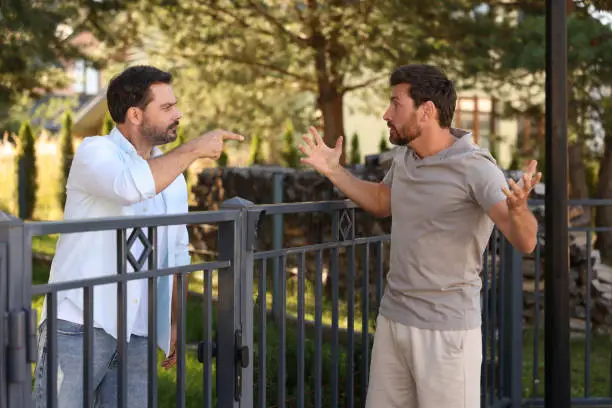
When complications related to a shared driveway arise during probate, it’s essential to address them promptly and effectively to avoid further delays or conflicts. Here are some potential strategies for resolving shared driveway disputes during probate:
1. Clarify the Easement or Agreement
The first step is to locate and review any recorded easements or shared driveway agreements. These documents should outline the rights and obligations of each party. If no formal agreement exists, the executor or beneficiaries may need to negotiate a new agreement.
2. Mediation or Negotiation
In many cases, shared driveway disputes can be resolved through mediation or negotiation. If the beneficiaries or neighboring property owners disagree over the terms of the shared driveway, a neutral third party (such as a mediator) can help facilitate a mutually agreeable solution.
3. Legal Action
If mediation or negotiation fails, legal action may be necessary to resolve the dispute. The probate court may need to clarify the terms of the easement or shared driveway agreement. In some extreme cases, it may order the removal of the driveway. However, legal action can be costly and time-consuming, so it’s typically viewed as a last resort.
Practical Considerations for Executors

As an executor responsible for overseeing probate, managing a property with a shared driveway requires diligence and attention to detail. Here are some practical steps executors can take to handle shared driveway issues effectively:
- Obtain a Title Search: A title search can reveal any recorded easements or agreements associated with the shared driveway. This will provide clarity on the legal obligations tied to the property.
- Communicate with Neighbors: Open communication with the neighboring property owners can help prevent misunderstandings and potential disputes. It’s important to keep the neighbors informed of the probate process and any potential changes to the property.
- Hire Legal and Real Estate Experts: Given the complexity of shared driveways in probate, it’s often beneficial to consult with a probate attorney or real estate expert. They can provide guidance on how to handle the shared driveway agreement and resolve any disputes that arise.
- Prepare the Heirs or Beneficiaries: Executors should ensure that the heirs or beneficiaries fully understand the shared driveway arrangement, including their rights and responsibilities under the easement or agreement.
Conclusion
In Texas, probate can be a complex process, especially when real estate with shared driveways is involved. Shared driveways, governed by easements or informal agreements, introduce unique legal and practical challenges that must be addressed by executors, heirs, and beneficiaries. Understanding the implications of shared driveway agreements, resolving disputes, and ensuring compliance with legal obligations are key to navigating the probate process successfully.
By approaching shared driveway issues with clarity, communication, and legal expertise, executors can ensure that the property is managed efficiently and that the decedent’s wishes are honored. Whether selling the property or passing it on to heirs, addressing shared driveway complications early in the probate process will help avoid unnecessary delays and conflicts.



